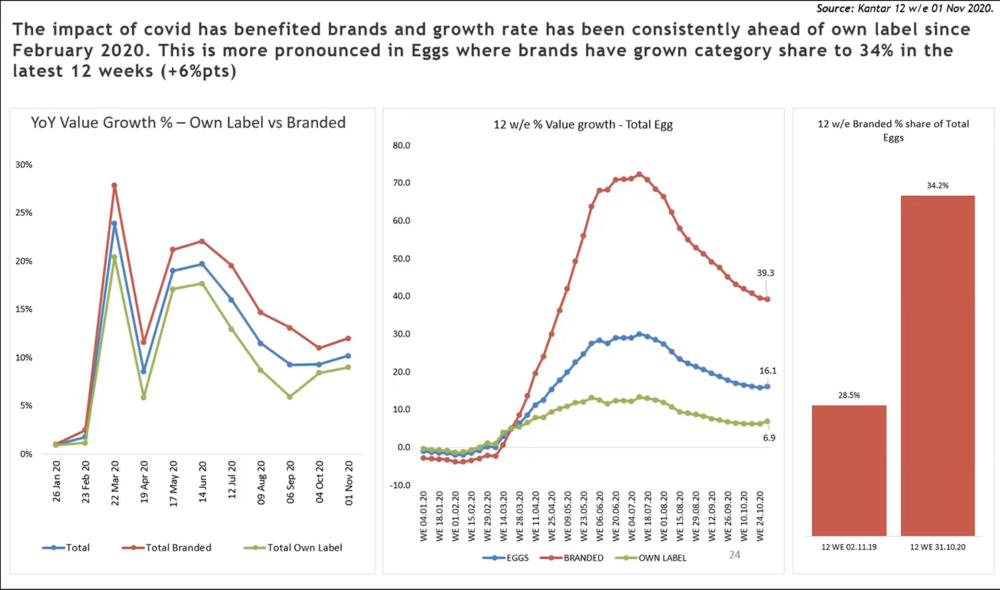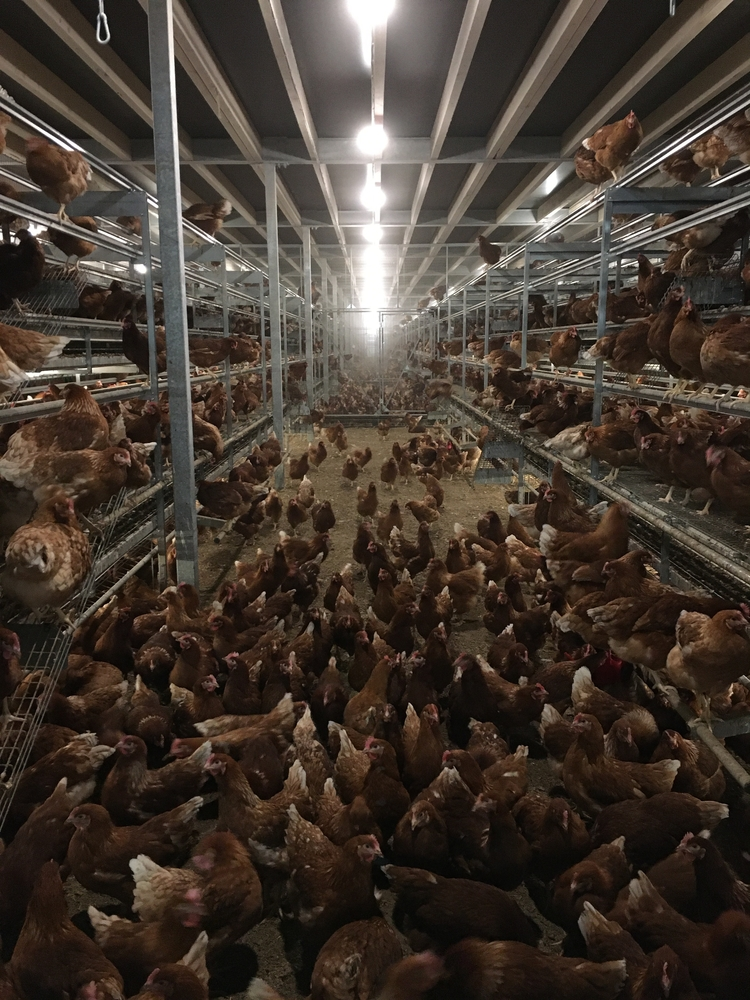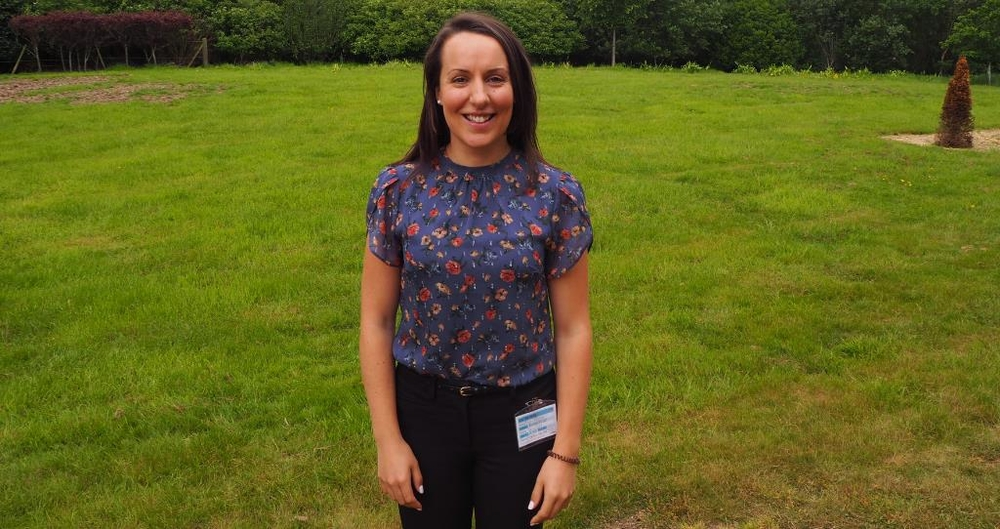As a senior area manager for Noble Foods across the southern half of the UK, I would usually spend several days every week out visiting our contract producers or on company farms. Of course, 2020 was been a year like no other. Since March, many face-to-face farm visits have become FaceTime meetings – and the NFU PIP has been a great forum for me to connect virtually with others in the broader poultry industry. On the 15 December last year, the current PIP group got together online with the agriculture director of Noble Foods, Jean-Paul Michalski, and its category controller, Andy Bolton, to better understand how staying ahead of consumer trends in the UK egg industry can ensure a successful future for producers and the poultry sector.
Sustainable relationship
Having a sustainable relationship across the supply chain, from producer to end customer, remains at the heart of Noble Foods, building on the legacy of founder William Dean, who began collecting eggs from smallholders and selling them door to door in Tring, Hertfordshire, over 100 years ago.
As a vertically integrated business we work across a number of sites including pullet rearing, laying hen farms, milling and old hen processing. The company also has 300 contract egg producers across the UK. In total, Noble Foods rear more than four million pullets and produce three billion eggs a year.
Focus on animal welfare
Jean-Paul led our discussion, reviewing numerous statistics. In the 52 weeks to the 27 December, Kantar figures show the UK retail egg market has grown +16.2% in value and +11.4% in volume (see graphs below). Brands continue to outperform private label across the market, driving value sales ahead of volume. Happy Egg has now reached £95 million RSV and has attracted 4.8m new shoppers to the brand. Unsurprisingly, these numbers confirm what many of us already know, animal welfare is a key driver in consumer buying habits. Happy Egg, Noble’s free-range flagship brand, is already the most purchased in the UK and as consumers focus more on animal welfare across all sectors of the food industry, the future looks exciting for brands that put bird welfare at the forefront of their values.

With 2025 set by the UK’s major supermarkets as the deadline for cage free egg, the sector is undergoing a major structural change. With extensive in-house experience across various production systems, Jean-Paul explained how the company is well placed to make data driven decisions which are commercially sustainable. It is this evidence-based approach that is leading Noble’s strategy to meet retailer demand for cage-free eggs.
Noble Foods sell eggs from more than six million free range birds, with a positive outlook for long term demand. However, the threat of Avian Influenza from migratory birds in the UK, more restrictive planning permission from local authorities and high investment requirements in an industry which is margin sensitive, all provide significant challenges to replacing egg volumes currently produced in colony cage systems.

Barn production systems can offer a good combination of high bird welfare within a housed environment. Systems include flat deck, combi, hybrid, or a true aviary system.
Four years ago, in a scientific effort to determine the most appropriate infrastructure investment, Noble Foods undertook an in-depth qualitative study to better understand consumer perception of each production system. As expected, consumers regarded free range and colony cage as being at each end of the perceived welfare spectrum, however there was a high degree of ambiguity around the term ‘barn’. This research was one factor in Noble Food’s decision to make multi-million-pound investments in both a specialist rearing unit, preparing young birds for multi-tier environments, and a 100,000 bird True Aviary barn stocked at 16.5 birds per square metre.
The NFU Poultry Industry Programme is a vibrant forum, fostering an open exchange of data and information which allows participants to benefit from insights and experiences, which few individual producers would usually have access to. Even in a virtual meeting, participants were able to gain significant insight into how the combined wealth of knowledge and experience of those who work for Noble Foods helps inform the business and contract producers on how to ensure profitability, sustainability and alignment with customer preferences. These are all aspects that William Dean would recognise as being fundamental for his success 100 years ago.
